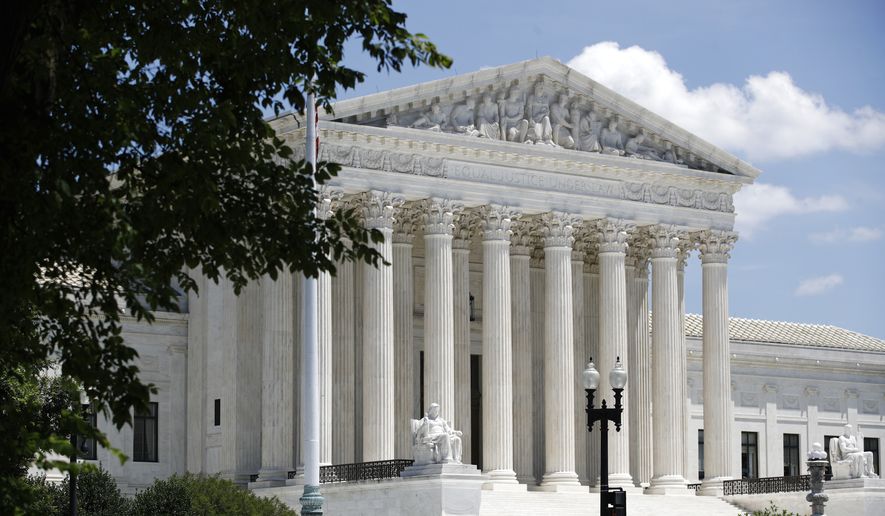The Supreme Court has heard arguments for only 10 days so far in its term, but it already has considered at least four legal battles over racial discrimination — suggesting the justices are grappling with issues about identity and culture like the rest of the country.
Court watchers warn against inferring any pattern among the race and identity cases because the justices don’t apply a theme to any particular term.
Instead, the justices focus on parts of the law that they think need to be addressed, and it just so happens that a few of the cases this year delve into the race debate, watchers say.
Adam Feldman, creator of the Empirical SCOTUS blog, said the cases touching on race and identity are “sufficiently unrelated.”
“I don’t think there is much of a pattern. The conservative justices have had voting rights, gerrymandering and affirmative action on their list of items to amend, and I think that these issues converge as a matter of happenstance rather than an overall agenda on race and identity,” Mr. Feldman said.
Rod Smolla, president of Vermont Law and Graduate School, offered a similar assessment. He said the justices “will get keenly interested” in a certain aspect of constitutional law such as the separation of powers or the equal protection clause “and suddenly pick a cluster of cases over [a] period of years in that area.”
“It’s only human nature, and it probably reflects things that a given group of justices believe need a correction,” Mr. Smolla said. “They are likely to take the identity cases because they think the law should change there.”
On its second day back in session last month after a three-month summer recess, the high court heard arguments in Merrill v. Milligan, a lawsuit claiming racial gerrymandering in Alabama.
Voting rights advocates say Republican lawmakers packed Black-dominated areas into a single district to dilute Black representation. Black people make up 27% of Alabama’s population but are the majority in one of the state’s seven congressional districts.
The justices will decide whether state officials violated the Voting Rights Act.
The court later heard arguments in two of this term’s biggest legal disputes: affirmative action policies at Harvard University and the University of North Carolina. Students for Fair Admissions claims the schools’ admission policies violate the Constitution by discriminating against Asian Americans in favor of Blacks and Hispanics.
The court upheld affirmative action in 2003, when Justice Sandra Day O’Connor noted in the majority opinion that the court hoped race wouldn’t be a factor in 25 years. The Harvard and UNC cases come to the court six years shy of that deadline.
A fourth race-related case before the Supreme Court involves nontribal families and their attempts to adopt American Indian children. At issue is the Indian Child Welfare Act, which tribes contend was enacted to protect tribal children from being taken outside their communities.
Jennifer and Chad Brackeen have challenged the federal law. They welcomed a child into their home in 2016 and had a difficult time adopting him even with the support of his birth parents, both American Indians. The tribe argued that the child should stay within his community.
The Brackeens say the federal legislation violates the Constitution. Other foster families have joined the legal fight, saying their adoption proceedings had been curtailed because of their lack of Indian blood.
Ilya Shapiro, senior fellow and director of constitutional studies at the Manhattan Institute, said the Supreme Court’s term doesn’t necessarily have a theme, but he noted that the court’s 6-3 conservative majority has made the justices more willing to dive into controversial topics.
Before his retirement, Justice Anthony M. Kennedy may have kept the left and right wings of the court from taking up hot-button issues because both sides were unsure how he would vote.
“The court now in its current composition is more willing to take up cases of political salience or higher profile controversies of various kinds than past courts,” Mr. Shapiro said.
He called it an “exaggeration” to say the justices are inserting themselves into identity culture wars.
“I don’t think the court specifically designates a given term as ‘this is going to be our abortion term’ or ‘this is going to be our race term’ or what have you,” he said.
• Alex Swoyer can be reached at aswoyer@washingtontimes.com.




Please read our comment policy before commenting.